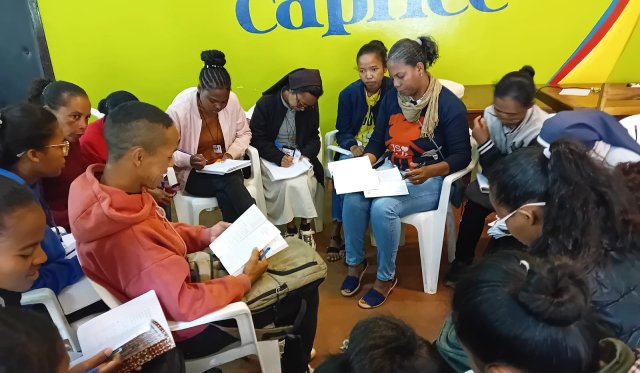History teaching for a mobile world

- Publisert: 7. august 2024.
This article was first published in the magazine EU Research.
The global population is highly mobile, and many European nations have experienced a significant influx of migrants over recent years. The children of migrants may have more complex and mixed loyalties than those who have lived in the same place all their lives, an issue central to the work of the TranCit project. “We are looking at the concept of transloyalties, where people have multiple loyalties,” explains Ellen Vea Rosnes, Professor in the Faculty of Theology and Social Sciences at VID specialized university in Norway. The point is well illustrated by a recent classroom exercise conducted by a primary school teacher in Norway, who asked pupils to draw an identity map, stressing that they were allowed to draw more than one flag. “Out of the class of 25 pupils, nine came from families where either one or both parents had emigrated to Norway. Four of these pupils drew two flags, while others did not draw a Norwegian flag at all,” says Professor Vea Rosnes.
Awareness of Transloyalties
This is an important finding in terms of understanding the wider picture around social inclusion and citizenship in modern societies. If teachers are not aware of these transloyalties and fail to reflect them in their teaching, Professor Vea Rosnes says there is a risk that the children of migrants will feel excluded from national discourse and debate. “If you don’t feel included as a citizen then there is a risk that you will distance yourself and feel that there is no room for you in society, that you don’t fit in,” she outlines. History is an important subject in this respect, as it can help shape how people see their nation and themselves, a topic that Professor Vea Rosnes and her team in the project are now exploring. “We will focus on history teaching in four countries, looking at how it has been taught at different times. We will do this through archival material, looking at textbooks used in the past, and we will also enter modern classrooms,” she explains.
The project team are looking at history teaching in four different countries in this work, namely Norway, Mauritius, South Africa and finally Madagascar, an island nation colonised by France in the late 19th century. Madagascar gained independence in 1960, but traces of the colonisers’ influence and language still remain in the education system. “For a long time the local language of Malagasy was not used in schools. French is not a language that most people mastered, so this had a huge impact on the educational system,” outlines Professor Vea Rosnes. By reflecting on the way that history has been taught in Madagascar’s schools, Professor Vea Rosnes hopes to encourage debate about the way it should be taught in future. “How can the material in the history curricula be presented in a more inclusive way? How can we reflect the fact that many pupils today have multiple loyalties?” she continues.
This research is both historical and contemporary in scope, with the project team looking at how history has been taught in each of the four countries, including at periods of great national upheaval such as following conflict or independence. The dissolution of the union with Sweden in 1905 is a major event in Norwegian history for example. “There was an eagerness to ‘create’ the nation at this time, and to build a sense of loyalty to the newly independent nation,” says Professor Vea Rosnes. She explains that the project will also look into the way in which history was taught in Norwegian schools following the Second World War. The process of nation building involved some quite harsh treatment of certain sections of the population, in particular indigenous peoples in the north of Norway. “Some people were put in dormitories as children, and they could not speak their language in school. This failure to value a language in school is a practice which is quite similar to what we have seen, and still see, in Madagascar,” continues Professor Vea Rosnes.